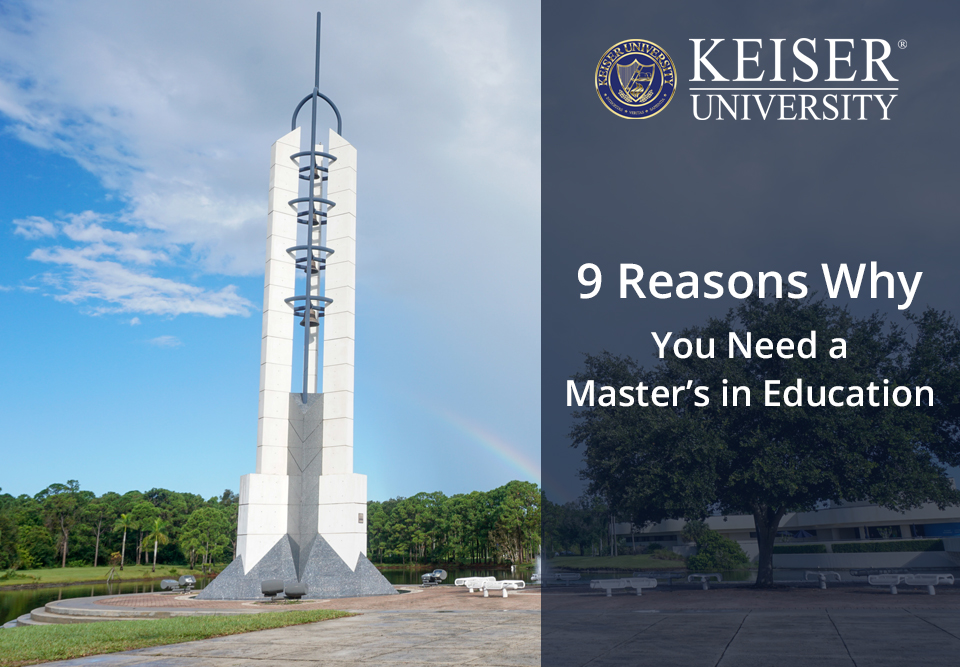Getting a Master in Education enhances your knowledge and expertise, opening doors to better career prospects and higher earning potential. Education is a vital field that shapes the future generations, and having a Master’s degree in this field equips you with advanced teaching techniques, research skills, and leadership abilities.
With a Master in Education, you gain a deep understanding of educational theories, curriculum development, and instructional strategies, enabling you to effectively address the diverse needs of students. Moreover, this degree enhances your professional credibility, making you a sought-after candidate for leadership positions such as school principal or curriculum specialist.
Additionally, a Master’s in Education allows you to network with other professionals in the education sector, fostering collaboration and continuous growth. Overall, pursuing a Master in Education equips you with the necessary tools and knowledge to make a lasting impact in the field of education.
Advantages Of A Master’s Degree In Education
The decision to pursue a Master’s Degree in Education can have numerous benefits for educators. One of the biggest advantages is the increased job opportunities and career advancement that comes with having an advanced degree. With a Master’s Degree in Education, teachers can become eligible for leadership positions such as department head, curriculum specialist, or school administrator. These positions often come with higher salaries and greater responsibilities.
Moreover, a Master’s Degree in Education provides educators with enhanced knowledge and expertise in educational practices. This specialized training allows teachers to stay updated with the latest research, theories, and best practices in education. It equips them with the tools and skills to effectively teach and engage students, ensuring their success in the classroom.
Additionally, pursuing a Master’s Degree in Education allows teachers to gain specialized training for teaching specific subjects or age groups. This enables educators to develop a deeper understanding of their subject matter and tailor their teaching methods to meet the unique needs of their students. Whether it’s teaching math to elementary students or instructing high school students in literature, a master’s degree provides teachers with the expertise and confidence to excel.
Professional Development And Networking Opportunities
Getting a Master in Education offers numerous professional development and networking opportunities. One of the key benefits is access to workshops, conferences, and seminars, where educators can gain valuable insights and stay up-to-date with emerging trends in the field. Participating in these events allows professionals to expand their knowledge, refine their teaching skills, and explore innovative teaching strategies.
Another advantage of pursuing a Master’s degree in Education is the opportunity to collaborate with experienced educators and researchers. Engaging in meaningful collaborations can provide invaluable mentorship, guidance, and support. By working alongside experts in the field, educators can gain new perspectives and ideas to enhance their own practice.
Additionally, pursuing a Master’s degree in Education allows educators to build relationships with fellow professionals in the field. These connections can lead to future collaborations, resource sharing, and networking opportunities. Engaging with a network of like-minded individuals enables educators to exchange ideas, ask questions, and learn from one another.
Impact On Teaching Skills And Pedagogy
Getting a Master’s degree in Education has a profound impact on teaching skills and pedagogy. By pursuing this advanced degree, educators gain valuable insights into learning advanced teaching methods and techniques. This equips them with enhanced tools to engage students and make learning more effective. They are able to foster critical thinking and problem-solving skills in their students, helping them become independent learners. Additionally, a Master’s in Education enables teachers to incorporate technology and innovation in the classroom, creating an interactive and dynamic learning environment. This not only enhances student engagement but also prepares them for the digital age.
Salary And Compensation Benefits
Having a master’s degree in education can significantly enhance your earning potential. Many studies have shown that individuals with advanced degrees in education tend to earn higher salaries compared to those with just a bachelor’s degree.
One of the main advantages of obtaining a master’s degree in education is the opportunity for salary raises and bonuses. With the increased knowledge and skills acquired through advanced education, educators become valuable assets to schools and school districts. This often results in higher compensation and rewards for their expertise.
Additionally, a master’s degree can also provide you with a competitive edge in the job market. As education becomes more specialized, employers often prefer candidates with advanced degrees. Having a master’s degree can make you more competitive against other applicants and can open doors to better job opportunities.
Overall, investing in a master’s degree in education not only offers financial benefits but also expands your career prospects. The higher earning potential, opportunity for salary raises and bonuses, and increased competitiveness make pursuing a master’s degree a wise choice for those passionate about education.
Influence On Educational Leadership And Administration
Advancement into administrative roles: Pursuing a Master in Education can open up new career opportunities in educational leadership and administration. Graduates with this degree often qualify for higher-level positions within schools, colleges, and educational organizations. By acquiring the necessary skills and knowledge, educators can climb the career ladder and take on roles such as principals, superintendents, or district administrators.
Increased opportunities for educational policy involvement: With a Master in Education, professionals gain a deeper understanding of educational policies and their impact on schools and students. This knowledge equips them to actively participate in the development and implementation of policies that can bring positive changes to the education system. Graduates can become catalysts for educational reform and work towards improving educational outcomes for all students.
Contribution to shaping the future of education: Graduating with a Master in Education empowers individuals to contribute to the shaping of the future of education. Through research, innovation, and leadership, they can drive educational initiatives that address evolving needs and challenges. By incorporating evidence-based practices, embracing educational technology, and promoting inclusive teaching methodologies, graduates can make a profound impact on the teaching and learning experiences of students.
Personal Growth And Fulfillment
htmlGetting a Master’s in Education is a significant achievement that brings a sense of accomplishment and boosts self-improvement. By investing time and effort in advancing one’s education, individuals experience a remarkable personal growth journey. This achievement not only enhances their professional credentials but also instills a deep sense of pride and confidence.
Obtaining a Master’s in Education allows educators to make a positive impact on students’ lives and educational outcomes. Through a deeper understanding of educational theories, advanced teaching methodologies, curriculum development, and educational leadership, educators become more effective in their role. This leads to improved student engagement, increased learning outcomes, and overall educational success.
Pursuing a Master’s in Education opens doors to continued lifelong learning and professional development. This degree equips educators with the knowledge and skills to stay updated with current educational practices, research, and trends. It promotes a commitment to ongoing growth and development, ensuring educators are equipped to meet the evolving needs of their students and schools.

Credit: www.keiseruniversity.edu
Frequently Asked Questions On Why Get A Master In Education
What Are The Benefits Of Having A Masters In Education?
Having a master’s in education offers numerous benefits. It opens up better job opportunities, higher salaries, and job security. It enhances your teaching skills, making you more effective in the classroom. It also provides advanced knowledge in educational theories and practices, allowing you to contribute to the field of education and make a positive impact on students’ lives.
Is A Masters In Educational Leadership Worth It?
Yes, a Masters in Educational Leadership is worth it as it provides advanced knowledge and skills needed for leadership roles in the education sector. It can lead to better job prospects, higher salaries, and opportunities for career growth.
What Are The Benefits Of Getting A Master In Education?
A Master in Education can enhance your teaching skills, increase your earning potential, and open doors to leadership roles in the education field. It provides specialized knowledge and expertise that can help you make a bigger impact on students’ lives.
How Long Does It Take To Complete A Master In Education Program?
The duration of a Master in Education program can vary depending on the institution and the format of the program. Typically, it takes about 1 to 2 years of full-time study to complete a master’s degree in education. Part-time and online programs may have more flexible timelines.
Conclusion
A Master’s degree in Education promises numerous benefits for educators, including advanced knowledge, enhanced career opportunities, and increased salary potential. With a specialized degree, educators can gain cutting-edge skills and stay up-to-date with the latest research and teaching methods. Moreover, a Master’s in Education equips teachers with the tools and strategies needed to promote student success and meet the ever-evolving challenges of today’s classrooms.
Invest in your professional growth and broaden your horizons by pursuing a Master’s in Education. Expand your expertise and make a lasting impact in the field of education.







